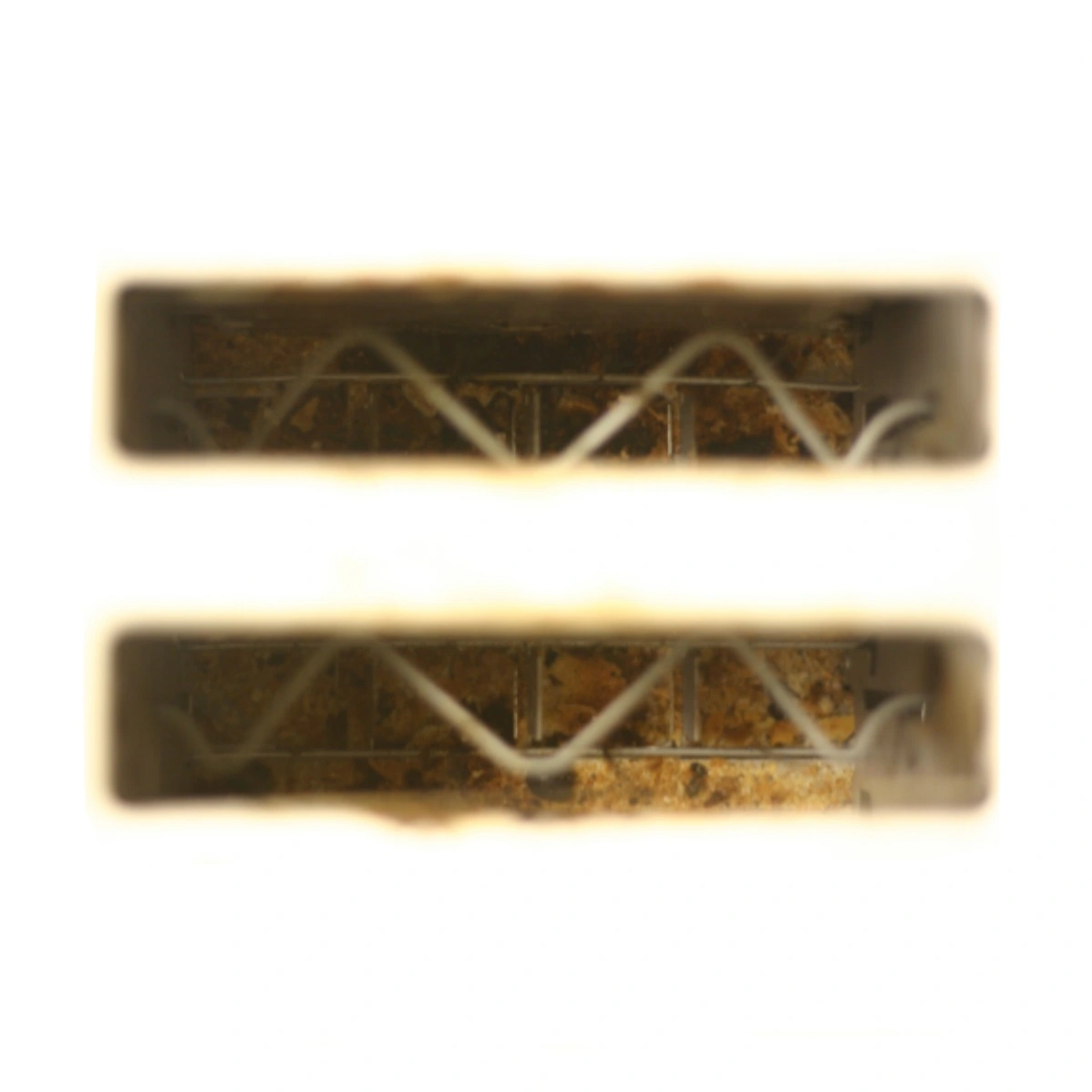Couldn’t find anything with less pixels, please save to disk and remove resolution yourself ❤️
I mean, if we want to get pedantic, nothing it’s stopping a virus from bringing it’s own drivers or a whole ass windows vm to pass the usb over ( i rememver the was something of the sort for windows using a windows xp machine for a botnet) It’s as always just a matter of how willing are you.
One liner for fixing driver issue, sounds great
Still faster than snaps /s
I had a problem and then I tried to solve it by installing a snap package. Now I have two problems.
I was doing a group project in college where we had a Linux server running some of our custom software. I asked a group mate who worked in IT to self-sign some certs so we could get https up and running for our next sprint demo.
He installed a fucking snap package to do it via certbot. On fucking RHEL. And that server was not hosting an internet-accessible service. And he didn’t know why I lost my mind.
Basically a “lemme get the flame thrower real quick so i can hammer that nail in for ya”
Not sure why you were enabling HTTPS for a project that was not hosting an internet-accessible service, really. By which I assume you mean the service doesn’t have a publicly accessible web based UI or API component. What were you trying to access and how? The only scenario I could think of for this would be that your custom software relies on HTTPS for secure communication within its own internal network (such as on a VPN) to send sensitive data back and forth between services. In which case that feels like overkill for a college course, since you shouldn’t have any genuinely sensitive data that you need to secure if it’s just for testing and demonstration.
It was a project requirement, PHI was processed by it, so yes, it needed a secure connection. I now realize I should have used mutual auth, but hey, I only learned about that after that project
We never sent actual data to it (the actually sensitive data used for training never left a secure VM), but the point of the course was to act like we were. Plus, setting up an nginx reverse proxy is simple, setting it up and getting certs from some ssl commands is a 10 minute task that appeases the project manager/professor with minimal effort.
deleted by creator
I’ll be honest, I’ve had times where there’s the “simple” solution, and “the solution I remember off the top of my head”, and 10/10 the one that’s happening is the one that I remember because I just did it last week.
I have no desire to google the arguments for self signing a cert with openssl, and I cannot remember which webserver wants the cabundle and the public cert in the same file. If I had done it even kinda recently I’d still remember what to poke in the certbot config.
If you have no desire to do rudimentary googling for a group project in college, that sounds like you aren’t a very helpful teammate. Last time I generated certs I used the first stack overflow result and was done in minutes, there’s no excuse.
This is confusing to me, because the point of the request seems to be “get a certificate”, not “get a self signed certificate generated by running the openssl command”. If you know how to get the result, it doesn’t really matter if you remembered offhand the shitty way or the overkill way.
Is it really more helpful to say “I remember how to do this, but let me lookup a different way that doesn’t use the tools I’m familiar with”?
Just say no if you don’t want to do something. I don’t understand why people think fucking shit up in the guise of helping is more acceptable than admitting that you can’t (or maybe just don’t want to) do something.
Do you think that, in this example, using certbot is fucking shit up, or breaking something?
The thing about overkill is that it does work. If you’re accustomed to using a solution in a professional setting, it’s probably both overkill and also vastly more familiar than the bare minimum required for a class project that would be entirely unacceptable in a professional setting.
In OPs anecdote, they did get their certificates, so I don’t quite see your “intentionally fucking things up” claim as what’s happening.
You can say what you want i still prefer appimages to snaps, old school windows stile ftw
If any of you pure Linux guys ever get a virus that installs windows, that’s going to be the funniest shit ever.
Pipes a script from the web in bash whitout checking:
Reboots to see the windows logo come up
two sentence horror story
I mean, honestly I’d just be pissed I had to reinstall, there will be no loss (or minimal, just whatever I torrented in the last few days, important things get backed up immediately). Maybe 4hr tops including data transfer to the new install.
They’d be looking like that one chick from the 2016 election that screamed Noooooo!
That would be a very interesting virus.
That sort of reminds me of the FBI patching compromised systems after they take over a botnet.
My infosec skills are far too sophisticated for infiltration (small piece of black tape)
Work laptop, it stays closed, and I use my two screens connected to it. After Covid, everyone wanted video calls. Nope, I’m not getting the laptop out from the back of the desk for you.
Anyone hacking the webcam can get a view of the base of the laptop.
You can get a whole sheet of tiny circle stickers for like, a dollar. I’ve used them for a decade or more now!
Yeah but the tape also covers the shitty microphone next to the camera.
Beat that, circlecuck!!
lots of the tapes ppl use for it are translucent tho lmao
Same (dremel)
you can’t spy on me through my webcam, I don’t have one
⠀⠀⠘⡀⠀⠀⠀⠀⠀⠀⠀⠀⠀⠀⠀⠀⠀⠀⠀⠀⠀⠀⠀⠀⠀⠀⡜⠀⠀⠀ ⠀⠀⠀⠑⡀⠀⠀⠀⠀⠀⠀⠀⠀⠀⠀⠀⠀⠀⠀⠀⠀⠀⠀⠀⠀⡔⠁⠀⠀⠀ ⠀⠀⠀⠀⠈⠢⢄⠀⠀⠀⠀⠀⠀⠀⠀⠀⠀⠀⠀⠀⠀⠀⣀⠴⠊⠀⠀⠀⠀⠀ ⠀⠀⠀⠀⠀⠀⠀⢸⠀⠀⠀⢀⣀⣀⣀⣀⣀⡀⠤⠄⠒⠈⠀⠀⠀⠀⠀⠀⠀⠀ ⠀⠀⠀⠀⠀⠀⠀⠘⣀⠄⠊⠁⠀⠀⠀⠀⠀⠀⠀⠀⠀⠀⠀⠀⠀⠀⠀⠀⠀⠀ ⠀ ⣿⣿⣿⣿⣿⣿⣿⣿⡿⠿⠛⠛⠛⠋⠉⠈⠉⠉⠉⠉⠛⠻⢿⣿⣿⣿⣿⣿⣿⣿ ⣿⣿⣿⣿⣿⡿⠋⠁⠀⠀⠀⠀⠀⠀⠀⠀⠀⠀⠀⠀⠀⠀⠀⠉⠛⢿⣿⣿⣿⣿ ⣿⣿⣿⣿⡏⣀⠀⠀⠀⠀⠀⠀⠀⣀⣤⣤⣤⣄⡀⠀⠀⠀⠀⠀⠀⠀⠙⢿⣿⣿ ⣿⣿⣿⢏⣴⣿⣷⠀⠀⠀⠀⠀⢾⣿⣿⣿⣿⣿⣿⡆⠀⠀⠀⠀⠀⠀⠀⠈⣿⣿ ⣿⣿⣟⣾⣿⡟⠁⠀⠀⠀⠀⠀⢀⣾⣿⣿⣿⣿⣿⣷⢢⠀⠀⠀⠀⠀⠀⠀⢸⣿ ⣿⣿⣿⣿⣟⠀⡴⠄⠀⠀⠀⠀⠀⠀⠙⠻⣿⣿⣿⣿⣷⣄⠀⠀⠀⠀⠀⠀⠀⣿ ⣿⣿⣿⠟⠻⠀⠀⠀⠀⠀⠀⠀⠀⠀⠀⠶⢴⣿⣿⣿⣿⣿⣧⠀⠀⠀⠀⠀⠀⣿ ⣿⣁⡀⠀⠀⢰⢠⣦⠀⠀⠀⠀⠀⠀⠀⠀⢀⣼⣿⣿⣿⣿⣿⡄⠀⣴⣶⣿⡄⣿ ⣿⡋⠀⠀⠀⠎⢸⣿⡆⠀⠀⠀⠀⠀⠀⣴⣿⣿⣿⣿⣿⣿⣿⠗⢘⣿⣟⠛⠿⣼ ⣿⣿⠋⢀⡌⢰⣿⡿⢿⡀⠀⠀⠀⠀⠀⠙⠿⣿⣿⣿⣿⣿⡇⠀⢸⣿⣿⣧⢀⣼ ⣿⣿⣷⢻⠄⠘⠛⠋⠛⠃⠀⠀⠀⠀⠀⢿⣧⠈⠉⠙⠛⠋⠀⠀⠀⣿⣿⣿⣿⣿ ⣿⣿⣧⠀⠈⢸⠀⠀⠀⠀⠀⠀⠀⠀⠀⠀⠟⠀⠀⠀⠀⢀⢃⠀⠀⢸⣿⣿⣿⣿ ⣿⣿⡿⠀⠴⢗⣠⣤⣴⡶⠶⠖⠀⠀⠀⠀⠀⠀⠀⠀⠀⠀⠀⣀⡸⠀⣿⣿⣿⣿ ⣿⣿⣿⡀⢠⣾⣿⠏⠀⠠⠀⠀⠀⠀⠀⠀⠀⠀⠀⠀⠀⠀⠀⠛⠉⠀⣿⣿⣿⣿ ⣿⣿⣿⣧⠈⢹⡇⠀⠀⠀⠀⠀⠀⠀⠀⠀⠀⠀⠀⠀⠀⠀⠀⠀⠀⣰⣿⣿⣿⣿ ⣿⣿⣿⣿⡄⠈⠃⠀⠀⠀⠀⠀⠀⠀⠀⠀⠀⠀⠀⠀⠀⢀⣠⣴⣾⣿⣿⣿⣿⣿ ⣿⣿⣿⣿⣧⡀⠀⠀⠀⠀⠀⠀⠀⠀⠀⠀⠀⠀⢀⣠⣾⣿⣿⣿⣿⣿⣿⣿⣿⣿ ⣿⣿⣿⣿⣷⠀⠀⠀⠀⠀⠀⠀⠀⠀⠀⠀⢀⣴⣿⣿⣿⣿⣿⣿⣿⣿⣿⣿⣿⣿ ⣿⣿⣿⣿⣿⣦⣄⣀⣀⣀⣀⠀⠀⠀⠀⠘⣿⣿⣿⣿⣿⣿⣿⣿⣿⣿⣿⣿⣿⣿ ⣿⣿⣿⣿⣿⣿⣿⣿⣿⣿⣿⣷⡄⠀⠀⠀⣿⣿⣿⣿⣿⣿⣿⣿⣿⣿⣿⣿⣿⣿ ⣿⣿⣿⣿⣿⣿⣿⣿⣿⣿⣿⣿⣧⠀⠀⠀⠙⣿⣿⡟⢻⣿⣿⣿⣿⣿⣿⣿⣿⣿ ⣿⣿⣿⣿⣿⣿⣿⣿⣿⣿⣿⣿⠇⠀⠁⠀⠀⠹⣿⠃⠀⣿⣿⣿⣿⣿⣿⣿⣿⣿ ⣿⣿⣿⣿⣿⣿⣿⣿⡿⠛⣿⣿⠀⠀⠀⠀⠀⠀⠀⠀⢐⣿⣿⣿⣿⣿⣿⣿⣿⣿ ⣿⣿⣿⣿⠿⠛⠉⠉⠁⠀⢻⣿⡇⠀⠀⠀⠀⠀⠀⢀⠈⣿⣿⡿⠉⠛⠛⠛⠉⠉ ⣿⡿⠋⠁⠀⠀⢀⣀⣠⡴⣸⣿⣇⡄⠀⠀⠀⠀⢀⡿⠄⠙⠛⠀⣀⣠⣤⣤⠄⠀
The safest laptops to use: The old ThinkPads still holding on through hopes and dreams.
No webcam.
But some spam mails think i have one.
I think I saw videos of you last week on one of those revenge porn sites. You were going to town on yourself. I’m guessing you didn’t send the bitcoin?
forcing hackers to do free tech support to scam you.
2K webcam resolutions
we only do 360p here, sir!

I don’t even have a webcam on my desktop. My Thinkpad has a sliding cover on its webcam that stays closed when I’m not using it.
The internal microphone is on the same board as the webcam in laptops.
Get a laptip with a real hardware switch for the cam and the mic. Best peace of mind knowing that they’re really off. Neither tape, nor the non-electrical built-in plastic sliders do that.
You still have to trust the manufacturer that it really turns the webcam off, not just the webcam light.
Unless you have a framework, and can remove the bezel and confirm that they work!
I’m really happy with my new framework’s switches, I actually trust them for once! I went to find a thing on how they work to post here:
"(They) saw the mention of the switches and that they are optical somewhere, but can’t remember to quote the source.
As far as I can tell each switch is a U channel with a light emitter on one side, and a detector on the other. The part you move on the bezel just breaks the light beam. This creates a electronic on/off hardware switch.
Using an actual physical switch would tend to be a source of an intermittent connection over time. Hence the use of optical technology. Same thought process for the screen open switch being a Hall Effect sensor, which can work through a cover."
Open-source hardware to the rescue! So you CAN verify it.
It probably can be inspected
Yes, but most won’t.
I mean, someone will do for every model. That would be enough to ensure security. If manufacturer faked it, and one in a thousand customers found it, then it will be a news or a lawsuit
Hardware switches physically cut power to the device in question and you can take it apart and verify. There is no trust involved.
99.999% will not take it apart and verify. They will just “nice, a physical switch”. There is a lot of trust involved.
They don’t neccessarily need to, you can pretty much always just look at reviews. Now you can make a point about trusting reviewers, but all that is still better than trusting the manufacturer or microsoft.
You’re right though, there is trust involved, but only if you don’t verify things yourself.
I have never seen a review opening a laptop to check if the hardware switch is really that. Please, link to a reviewsite that does that
Sure beats literally no protection which is what most laptops have. I have a switch and sometimes forget it’s off and my webcam/mic definitely don’t work, on any OS.
I’d like a proper hardware light. Something physical such that the camera cannot send the image back to the board without the light being on. And yes, a physical cutout switch would definitely be nice.
Either buy a sticker cover with a slider or get lenovo laptops that have that builtin; even though the slider is confusionary since when it’s closed it’s a red dot. Im sure that there must be other brands that integrate it as well
The problem with those is that it’s often just a piece of plastic, so the microphone isn’t cut off from power. The webcam sees noching, but sound is unaffected.
Hackers won’t have much to blackmail me, I fap completely silently.
It’s more about privacy. Windows might access your mic to get more data on you for advertising, wouldn’t be anything new.
I am joking of course. I am a privacy freak myself:
- All my computers run Linux
- I self-host all what I can and encrypt as much as I can by myself too
- On desktop, Mic and Cam are connected to a USB hub with individual switches such that they are powered ON only when I need them
- Laptop is a Framework 13 with HW switches for both Cam and Mic
There is something about the webcam switch on the Lenovo from work, that I like better than the Framework: The switch also physically blocks the camera. It makes me feel more safe and it’s actually much more intuitive to understand when it is disable. On Framework, the switch shows either red or black, but I never know what is enable and disable. Is it red for “Careful, it’s active !” or red for “Disable” ? (It’s Red=Disable, Black=Active).
That’s how my Dell work machine is. The switch slides some red plastic over the lens.
I keep my webcam unplugged when not in use.
Doctors hate him for this one simple trick!
I simply don’t own a webcam. Last time I actually had a use for one was sometime around 2003. That said, I’m still fucked because I made the mistake of buying a phone that uses the camera as the light sensor.
I keep a webcam because I trust my personal computer far more than my phone when it comes to private comms.
My WebCam has such low resolution I could argue that that’s anybody in the picture. Go ahead.
Low res webcam, massive north facing window behind me (australia), i make people pay dearly for wasting my time with meetings

damned skippy.
I would also have accepted close encounters or there are four lights.
Ooh, another one:

I would say “enjoy flashing everyone”… but that could be awkward, so make sure to flash responsibly:-D
Is that Fox Mulder? lol
I love my frame.work 16 and its hardware switch for camera and mic
I like my ThinkPad for that too. It’s great.
Framework is thinkpad2
System76 has some machines with hardware camera killswitches too. Big fan of Framework’s open-source hardware and
firmwaremicrocontroller firmware though.Their firmware isn’t opensource. At least not fully. Only the EC firmware has been opensourced, that is the firmware for the micro-controller responsible for the battery, keyboard, buttons, LEDs, sensors, and so on…
The boot firmware, responsible for getting the CPU and hardware in a bootable state, is absolutely proprietary. There is initial support for one specific framework motherboard in coreboot, a partially libre boot firmware, but it’s very new and I don’t know exactly what is and isn’t supported…
Thank you for clarifying, I edited my comment. I was referring to coreboot but did not know that it was not yet widely supported in Framework laptops.
What about Intel ME, Microsoft Pluton, the one for AMD. The secret chips that have direct access to your hardware. Basically a blackbox. Same with cellphones. SoC.
the one for AMD
It’s called PSP (Platform Security Processor), iirc
And to answer your question:
- Old-ass thinkpad as daily driver: Acquired
- RPI Pico: Acquired
- SOIC Chip programming clip: Acquired
- Motivation to get off my ass and actually flash libreboot and me-cleaner: In progress…
CIA Operative: that’s the neat part, I know how to make them work
So that means I get a working webcam! It’s a win-win! /j
We get a working webcam. For about the 30 seconds it takes you to fap
Don’t ask me how I know it’s 30 seconds
Also stop looking at the camera while fapping it’s disturbing
I use tape
btw
and it has flames on it





















